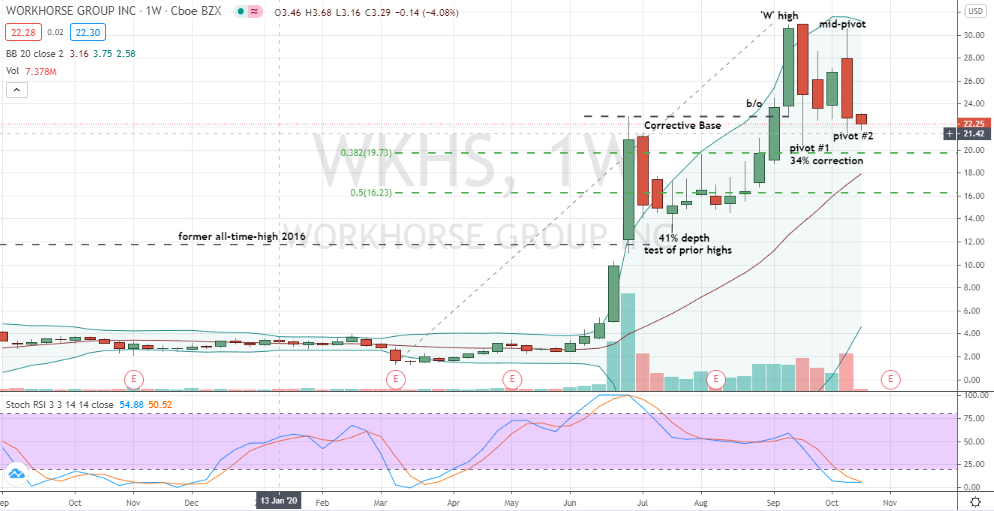



Specifically, commercial vehicle fleet conversion to electric would take priority, as the segment continues to account for more than 80% of total transportation sector GHG emissions. Global electrification of the transportation sector has been viewed as a key element to decarbonizing the economy, as it currently accounts for one of the largest portions of global greenhouse gas (“GHG”) emissions. Material catalysts such as a defined global expansion roadmap and/or consolidation with peers within the supply chain would be required to drive further upside potential in the long-run.ĭecarbonization has become an urgent ordeal within global political agendas as the world continues to trail behind the 7.6% annual emissions reduction goal required to avoid worsening impacts of climate change.Despite high-growth opportunities ahead within the last-mile delivery sector, we believe the stock's current price performance already reflects Workhorse's intrinsic value based on its five- to ten-year growth plan and scale of operations disclosed to date.However, internal headwinds, such as production delays and an active SEC probe, have caused some near-term pressure on Workhorse's valuation over the past year.The company specializes in making purpose-built electric work vans and last-mile delivery drones. This makes strong tailwinds for Workhorse, one of North America's leading electric last-mile delivery vehicle providers.The past 18 months of pandemic-related lockdowns and social distancing measures have accelerated e-commerce adoption, which has inadvertently driven an urgent need for cost-efficient and reliable last-mile delivery transportation solutions.


 0 kommentar(er)
0 kommentar(er)
